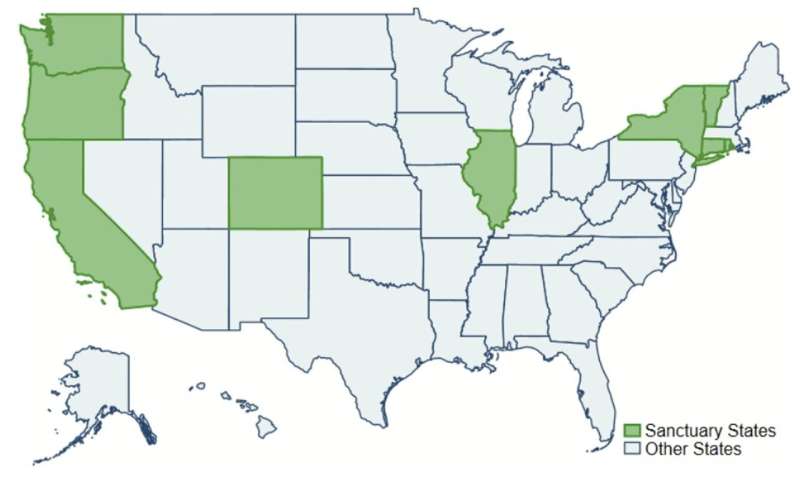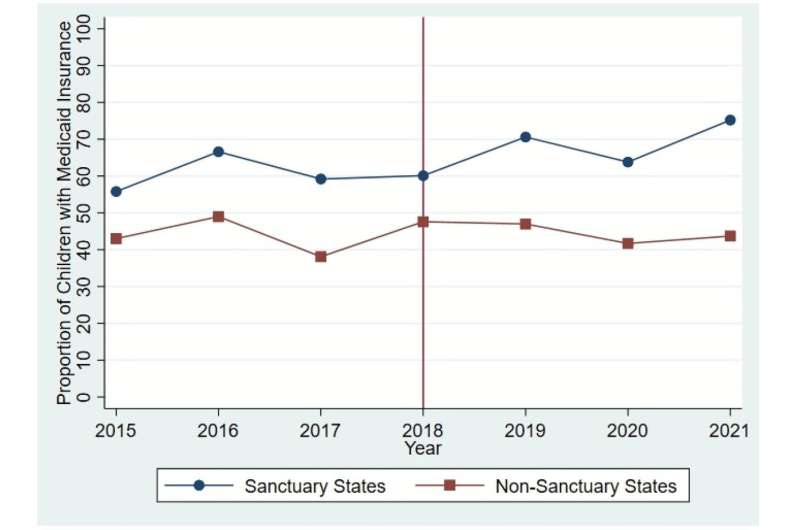This article has been reviewed according to Science X's editorial process and policies. Editors have highlighted the following attributes while ensuring the content's credibility:
fact-checked
trusted source
proofread
Medicaid enrollment among immigrant children higher in sanctuary states

Low-income immigrant children in sanctuary states were nearly 10% more likely to be enrolled in Medicaid in the years following the 2018 announcement of the revised "public charge" rule, according to a new national study. Researchers examined trends in children's Medicaid enrollment in sanctuary states—states that limit collaboration with federal Immigration and Customs Enforcement personnel. The research will be presented at the Pediatric Academic Societies (PAS) 2023 Meeting, held April 27-May 1 in Washington, D.C.
Researchers explored Medicaid enrollment rates among low-income immigrant children following a 2018 federal rule denying immigrants permanent residency based on participation in public programs, including Medicaid for adults but not for children.
Researchers found that Medicaid enrollment among low-income immigrant children in sanctuary states— Calif., Colo., Conn., Ill., N.Y., Ore., R.I., Vt., and Wash.—increased after the 2018 rule update. Medicaid enrollment rates among low-income immigrant children in non-sanctuary states decreased during the same period.
"Federal immigration policies can serve as political determinants of health, denying children in immigrant families access to health insurance and medical care," said Marine-Ayan Ibrahim Aibo, medical student at Perelman School of Medicine at the University of Pennsylvania and presenting author. "States can break barriers to care that federal immigration policies create and ensure every child receives the care they need."

The study looked at 3,943 immigrant children from the U.S. Census Bureau and U.S. Bureau of Labor and Statistics' Current Population Survey to compare Medicaid enrollment in sanctuary and non-sanctuary states, adjusting for race, ethnicity, state, year, and Medicaid expansion status.



















